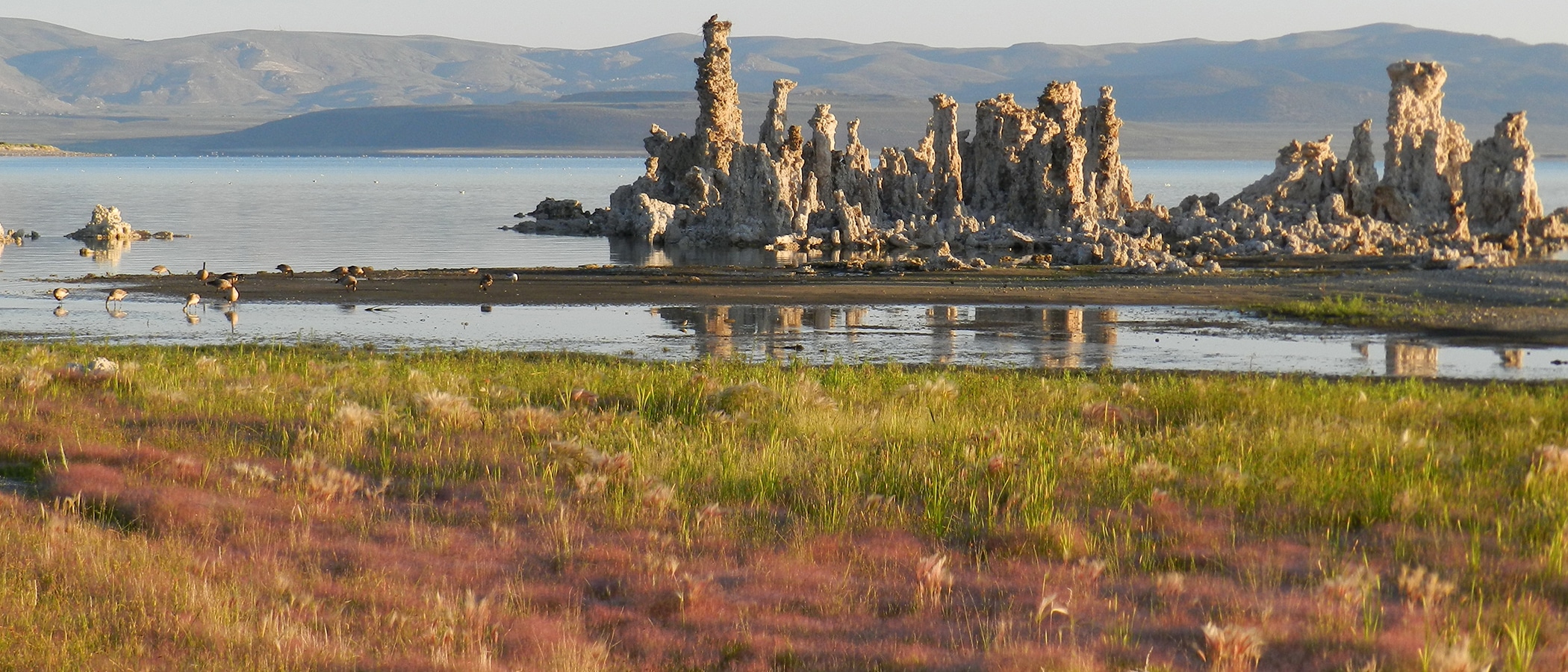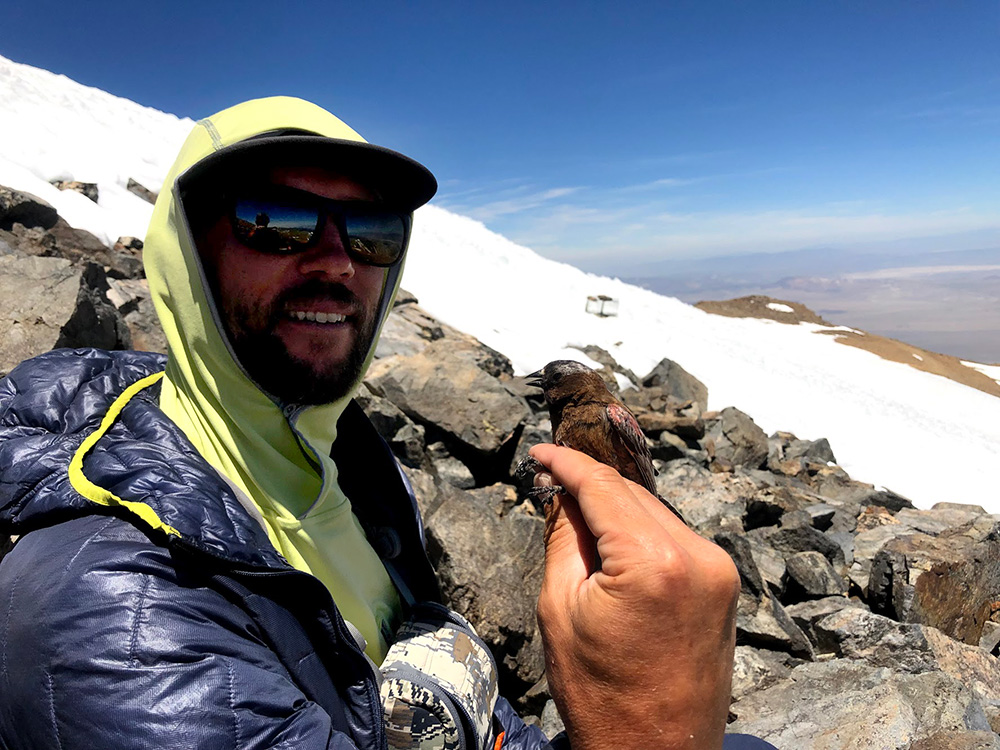
This post was written by Ellie Neifeld, 2019 Mono Lake Intern.
Join us on Wednesday August 28 at 4:00pm in the Mono Lake Committee gallery for this week’s Refreshments with Refreshing ‘Ologists. Tim Brown, UC Santa Cruz PhD candidate, will be here to discuss Sierra Nevada Rosy-finches and climate vulnerability. If you can join us for this free talk, please register here.

Mountaintop animals are among the most vulnerable species to climate change. If warming forces them upwards, they face an “escalator to extinction” as they reach the upper elevational limits of available habitat. Understanding mechanisms that both limit these extreme environment specialists and control their responses to variation and change is fundamental to anticipating species conservation threats and priorities.
Mobile, generalist-diet mountaintop animals can also serve as focal surrogates for alpine communities, their responses to directional change, and intervention needs. Rosy-finches (Leucosticte) include the highest-elevation breeding songbirds in North America and some of the highest in Asia. While some Rosy-finches could move uphill, such as the Alaskan endemics, others already breed at the highest available elevations.
In Wednesday’s presentation Tim will focus on the Sierra Nevada Rosy-finch (Leucosticte tephrocotis dawsoni) to answer two critical questions: what limits its breeding distribution to extreme elevations, and how does understanding these limits inform its conservation under climate change?
